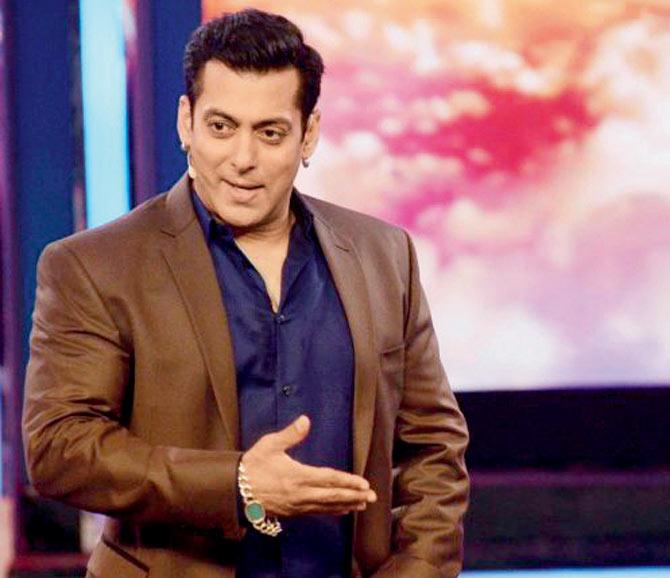A doctor on Thursday told a local court hearing the hit-and-run case allegedly involving superstar Salman Khan that the actor smelt of alcohol when he was brought for a blood test soon after the incident though during clinical examination the same day it appeared he was not under the influence of liquor

A doctor on Thursday told a local court hearing the hit-and-run case allegedly involving superstar Salman Khan that the actor smelt of alcohol when he was brought for a blood test soon after the incident though during clinical examination the same day it appeared he was not under the influence of liquor.
"The patient's (Salman) pupils were slightly dilated, speech was coherent and walking steps were normal during clinical examination," Dr Shashikant Pawar told Special Public Prosecutor Pradeep Gharat in the court.
ADVERTISEMENT

According to police, Khan's car had rammed into a roadside shop in suburban Bandra killing one person and injuring four people who were sleeping on pavement on September 28, 2002.
The actor was taken to Government-run J J Hospital soon after the mishap for necessary examination. Pawar at that time was attached to the hospital.
To a query, Pawar said Khan was smelling of liquor when he was brought to him but during clinical examination later in the day, he did not appear to be under the influence of alcohol. This was a preliminary finding and the report of chemical analysis of the actor's blood sample was awaited.
However, the Bollywood star had told him he had not taken drinks, Pawar, who appeared as a prosecution witness, told Sessions Judge D W Deshpande.
However, during cross-examination by Khan's lawyer Srikant Shivade, Pawar admitted he had not recorded in the case papers prepared by him that Khan smelt of alcohol.
He, however, could not assign any reason for not recording this fact. The doctor admitted that there were no clear guidelines by the Health Department regarding cases where blood test should be conducted.
Pawar said he had taken Khan's consent for the blood test but this had not been recorded in the case papers. He admitted the case papers did not bear the signature or thumb impression of the actor.
Asked if it was necessary to take consent for blood test, he replied in the affirmative.
To a question, the doctor said dilation of pupils could be due to many reasons though consumption of alcohol could be one of the factors. "One cannot conclusively say that pupils were dilated due to consumption of alcohol."
From the case papers, it cannot be said that the patient was smelling of alcohol, Pawar said in response to a query
from the defence lawyer.
Asked why the papers did not mention the word 'alcohol', the doctor could not give any reason. He, however, said it is possible that impression of this word could not appear in the carbon copy of the document.
The doctor said he had compared the entries of the Emergency Police Register and case papers, verified and
certified their contents to be correct.
To a question by Shivade, Pawar, however, said it would be incorrect to say the word alcohol was not in the police register or case papers and that it was later added by him in the documents.
The cross-examination will continue on January 27.
A total of 21 witnesses have been examined and five to six more remain to depose in the trial which has reached its tail-end.
The case, dragging for over a decade, had taken a twist when a city Magistrate, after examining 17 witnesses, held that the charge of culpable homicide not amounting to murder was made out against Khan and referred it to a sessions court, the competent judicial authority for such matters.
On December 5, 2013, the sessions court had ordered a fresh trial on the ground that witnesses had not been examined in the context of aggravated charge of culpable homicide which was invoked against the actor by the magisterial court midway through the hearing.
The charge of culpable homicide (unintentional but illegal killing of someone) attracts a 10-year sentence.
The 49-year-old actor had earlier been tried by a magistrate for a lesser offence of causing death by negligence, which entails imprisonment of two years.
 Subscribe today by clicking the link and stay updated with the latest news!" Click here!
Subscribe today by clicking the link and stay updated with the latest news!" Click here!







